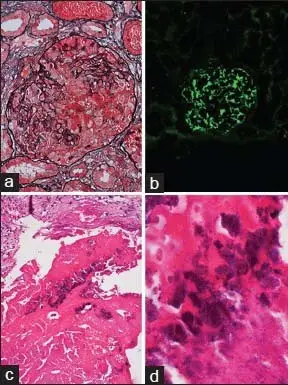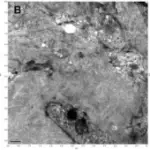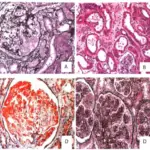Glomerulonephritis associated with bacterial endocarditis is glomerulitis that results from bacterial endocarditis.
What is the Pathology of Glomerulonephritis Associated with Bacterial Endocarditis?
The pathology of glomerulonephritis associated with bacterial endocarditis is:
-Etiology: The cause of glomerulonephritis associated with bacterial endocarditis is bacterial based mainly staphylococcus aureus.
-Genes involved: Unknown.
-Pathogenesis: The sequence of events that lead to glomerulonephritis associated with bacterial endocarditis is the presence of immune complexes that are found as a result of bacterial endocarditis.
-Morphology: Not applicable.
-Histology: Lymphocytic infiltrate of glomeruli.
How does Glomerulonephritis Associated with Bacterial Endocarditis Present?
Patients with glomerulonephritis associated with bacterial endocarditis are typically male present at the age range of 30-50 years. The symptoms, features, and clinical findings associated with glomerulonephritis associated with bacterial endocarditis include urinary symptoms.
How is Glomerulonephritis Associated with Bacterial Endocarditis Diagnosed?
Glomerulonephritis associated with bacterial endocarditis is diagnosed in blood tests.
How is Glomerulonephritis Associated with Bacterial Endocarditis Treated?
Glomerulonephritis associated with bacterial endocarditis is treated with a short term low dose of corticosteroids.
What is the Prognosis of Glomerulonephritis Associated with Bacterial Endocarditis?
The prognosis of glomerulonephritis associated with bacterial endocarditis is poor.



